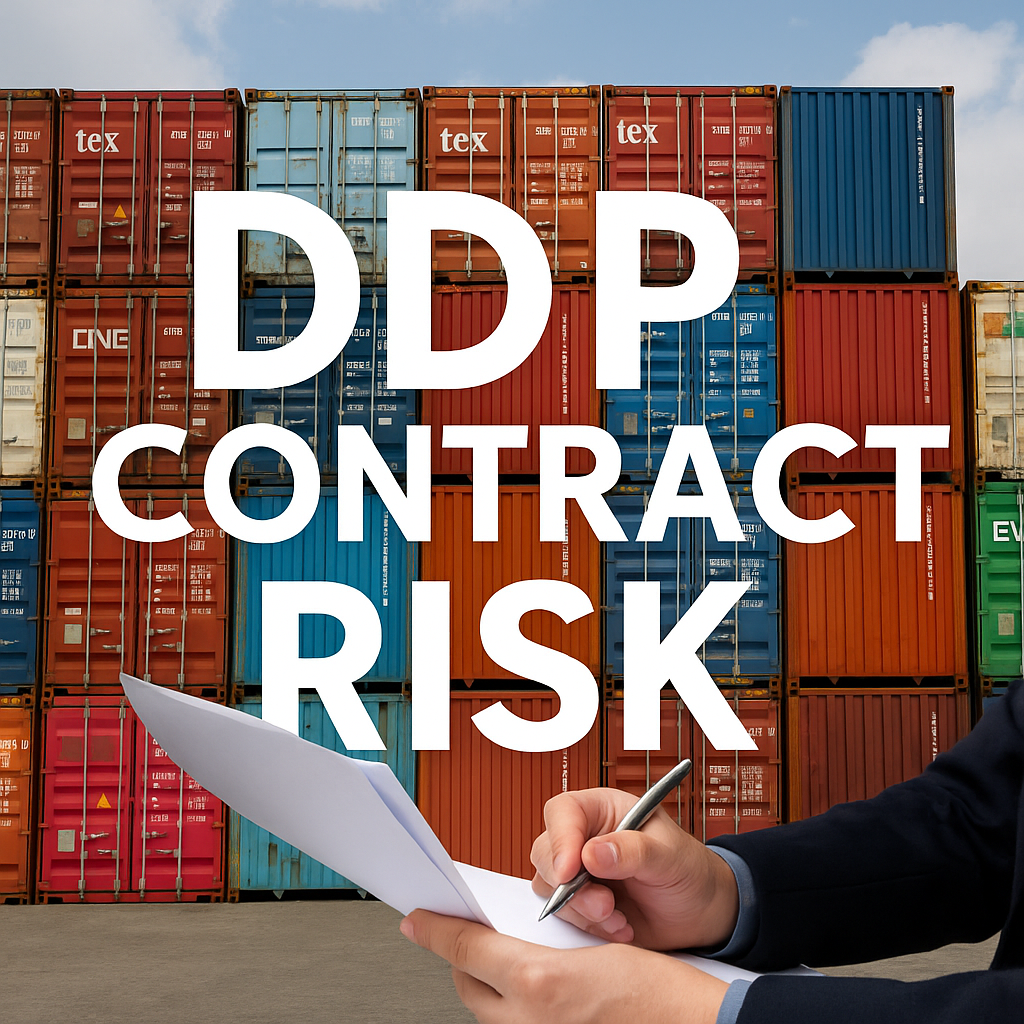
In recent months, we have seen a surge of inquiries from importers whose overseas suppliers are introducing the term “mDDP” (modified Delivered Duty Paid) or shifting to “DDP”-type delivery structures. At first glance, these offers seem appealing: duties, taxes, and logistics costs are bundled into one attractive landed price.
Yet beneath that simplicity may lie serious customs-compliance risks.
What “mDDP” and DDP Really Mean
The abbreviation “mDDP” does not appear in official Incoterms® issued by the International Chamber of Commerce and has no legal standing under U.S. Customs and Border Protection (CBP) regulations.
Our internal review, supported by communications with CBP, indicates that U.S. authorities are scrutinizing shipments showing unusual delivery terms, unexplained value or origin changes, or DDP contracts that blur which party is truly the Importer of Record (IOR).
Why Importers Should Be Cautious
1. Undefined Legal Status
Non-standard terms such as mDDP can mask true transaction value, complicate IOR responsibility, and create audit exposure.
2. Heightened CBP Oversight
CBP is tracking entries that show value deviations, atypical routing, or Incoterm switches. Such cases may lead to duty reassessments, penalties, or enforcement action.
3. False Sense of Security
Even if a supplier claims to “cover duties,” U.S. law may still hold the purchaser liable if declarations are inaccurate or if the IOR is misassigned.
Red Flags to Watch
-
Use of mDDP, “modified duty paid,” or other non-standard Incoterms®.
-
Sudden switches from FOB/FCA to DDP without commercial explanation.
-
Suppliers promising to absorb or waive duties/taxes.
-
Routing goods through “friendly” countries lacking real transformation.
-
Invoices, broker filings, or classifications that don’t match contracts.
Recommended Importer Actions
-
Verify Incoterms®: Ensure contracts use recognized terms (EXW, FCA, FOB, CIF, CPT, CIP, DAP, DPU, DDP, FAS).
-
Demand Transparency: Identify the Importer of Record, broker, and duty/fee breakdown; request valuation support.
-
Track Supplier Behavior: Audit delivery-term or routing changes.
-
Strengthen Internal Controls: Integrate Incoterm, valuation, and routing checks into compliance reviews (19 CFR § 163.4).
-
Seek Expert Advice: Engage your customs broker or legal counsel when terms appear non-standard.
The Bottom Line
While non-traditional delivery terms may seem to simplify trade, they can expose companies to financial penalties, delayed shipments, and reputational damage.
Make delivery terms, IOR responsibility, and duty transparency a routine part of your due-diligence and compliance program.